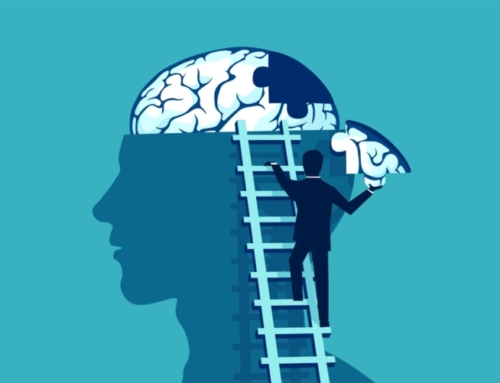An aspect of practicing medicine that often troubled me early in my career, and that arose periodically since when treating especially challenging patients, was the feeling of clinical defeat. A condition that is called therapeutic nihilism. This is a state in which a clinician feels overwhelmed by the chronicity and complexity of a patient’s symptoms and functional deficits, the recurrence of new and complicated problems, the patient’s lack of support, and in some cases, their continued exposure to trauma or threat. This state of nihilism develops after the clinician’s repeated efforts at ameliorating the patient’s symptoms and improving their quality of life have failed. Many times, in the face of such failure, the patient stops coming, either to seek the help of another clinician, one who will also likely fail, or to withdraw from psychiatric care altogether.
The reason I felt troubled whenever a sense of defeatism arose within me was not because I had failed to help the patient – because failure need not reflect on the quality of my efforts but should rather reflect the intractable nature of the patient’s illness. And it was not because of the patient’s continued suffering – because suffering is part of the human condition, which is painful to experience vicariously while feeling helpless to lessen, but which I accepted as part of being a clinician. Rather, the main reason I felt troubled when I found myself descending into a sense of defeat was because I feared giving up on the patient. And, I slowly realized, that giving up on the patient meant giving up on my conviction that there is more I can do and that I need to do with appropriate alacrity to provide relief to the patient. Thus, it became clear that therapeutic nihilism is less about the patient and the difficulty of their condition, and more about me, about whether I will choose to maintain an attitude of never giving up and a comportment of continued active engagement.
I believe I was able to overcome this sense of therapeutic nihilism once and for all for the following three reasons.
First, I realized that I had never actually reached the end of a treatment algorithm when treating whichever condition the patient suffered from. From this, I realized that I would never exhaust all possibilities.
Second, I realized that even if I did reach the end of an algorithm and had tried every combination of medications and therapies along the way – a virtual impossibility – even then, something may have changed that would allow me to start at the very top of that algorithm without feeling I was repeating failed interventions. That something was the passage of time and all the large and small changes in the patient’s life accompanying that passage of time.
There is a third and perhaps most important reason I put therapeutic nihilism behind me: I realized that even if I could not lessen a patient’s symptoms, improve their function, expand their support, or reach any other goal laid out in the treatment plan – even in these most unpromising circumstances – I still could do one thing. This one thing depended solely on me and not on the patient nor on the world in which we found ourselves. It is my ability and willingness to dwell with the patient in their pain.
So, a clinician is NEVER bereft of therapeutic interventions. Even among those patients facing their last days of life from an incurable and unstoppable disease, they can be helped. They can have one or more people in their lives who do not run away, give up, or blame them, but who instead commit to seeing them through whatever comes next, no matter how bad that will be. So, I realized, it is solely up to me whether I offer myself, through my professional but crucially important relationship, to that patient, so they are not alone.
There is not a one-to-one relationship between suffering and pain nor between suffering and severity of symptoms and dysfunction. A sense of hopelessness, helplessness, and aloneness increases a human being’s experience of suffering. Thus, a clinician’s commitment to bear witness, seek to understand and validate, and be there when needed – these are the parts of clinical care that often are more important than whatever medication or homework assignment a clinician prescribes. This is what I mean when I say, “Know your power.” It is YOU who are the intervention, often more so than any other intervention you prescribe. Of course, with such power comes great responsibility, a responsibility that must be exercised with humility, caution, and vigilant attendance to what is right for the patient.
Language Brief
“The new always happens against the overwhelming odds of statistical laws and their probability, which for all practical, everyday purposes amounts to certainty; the new therefore always appears in the guise of a miracle.” ― Hannah Arendt
“Friendship is unnecessary, like philosophy, like art…. It has no survival value; rather it is one of those things which give value to survival.” ― C.S. Lewis
“Sometimes loneliness makes the loudest noise.” ― Aaron Ben-Ze’ev
“Storytelling reveals meaning without committing the error of defining it.” ― Hannah Arendt







Leave A Comment